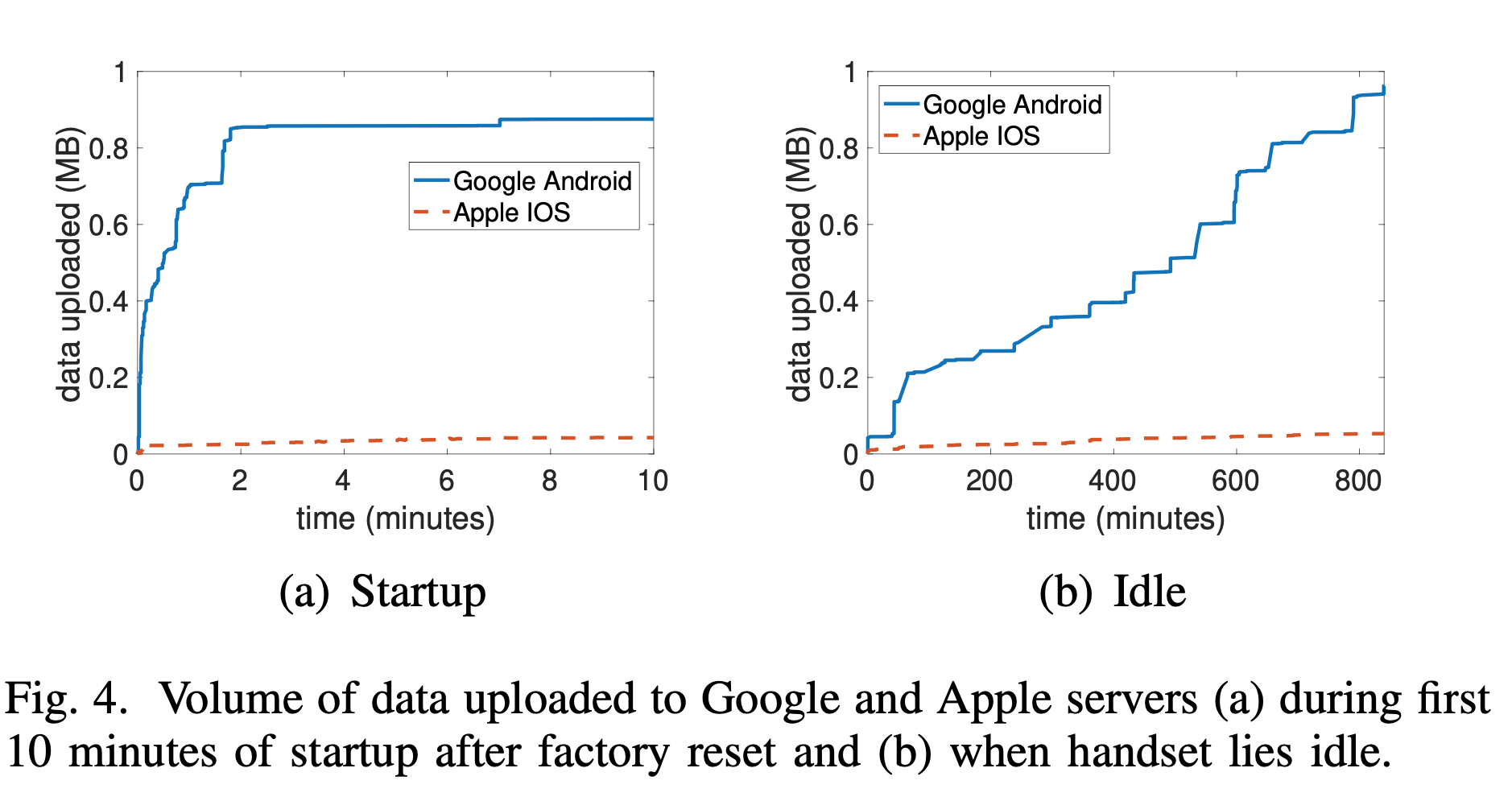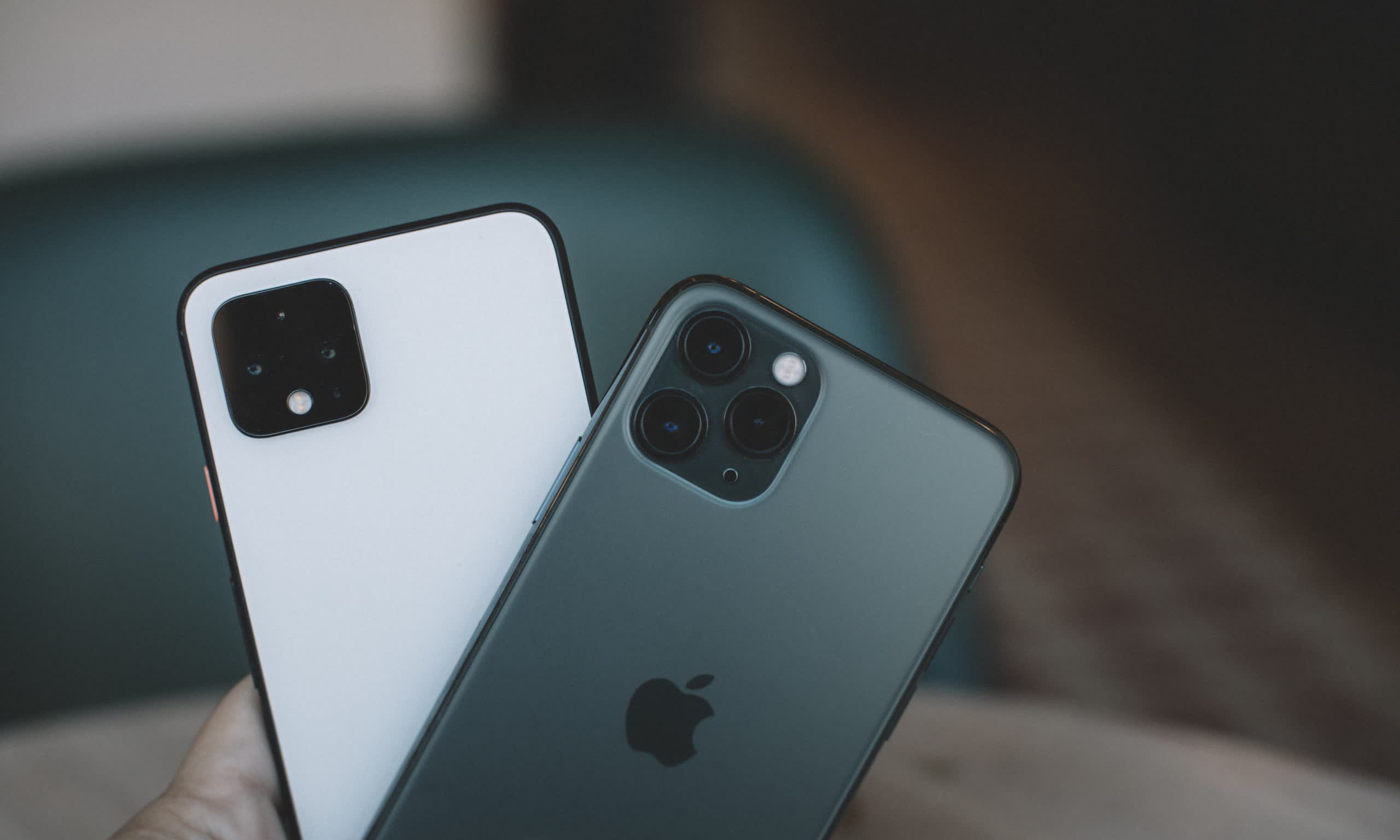[ad_1]
Bottom line: A recent analysis highlights the extent of the telemetry data collected by Google and Apple from phone users and paints an awful picture about Android data collection. However, both companies disagree with the findings, noting that they only reveal what’s necessary to keep phones running smoothly.
By now, it’s no secret that companies like Google and Apple collect telemetry information from mobile devices and software that you use. Still, there is a difference in terms of the amount and types of data collected. Even when you’re not using your Android or iOS device, or just as soon as you’ve turned them on for the first time, there is some data that gets sent to Google and Apple’s servers. Timestamps for inserting a SIM card into your phone or whenever you change a hardware setting or open an app are a couple of examples.
Research conducted by Douglas Leith from Trinity College in Ireland suggests Google collects more than twenty times more data from a typical Android handset than Apple does from an iPhone. That finding stays true even after a user has explicitly opted out of such telemetry collection. On average, both Android and iOS handsets share data with Google and Apple servers every 4.5 minutes, and there’s little you can do as a user to prevent that from happening.

Researchers noted that devices on default privacy settings share information related to the IMEI, SIM serial number, phone number, hardware serial number, location, cookies, local IP address, nearby Wi-Fi MAC addresses, and advertising ID. When a user has not yet logged in, Android phones don’t send location, IP address, and nearby Wi-Fi MAC addresses, while iPhones don’t send their own Wi-Fi MAC address.
Factoring in the estimated 113 million iPhone users and 129 million Android users in the US and the volume and frequency of data collection on both platforms, Apple collects somewhere to the tune of 5.8 GB of data every 12 hours. In contrast, Google collects a whopping 1.3 TB in that same timeframe.
Leith believes the extent of the data collection concerning since it can be used to link your personal information to a particular device, which can then be used for targeted advertising or other purposes. The researcher sent his findings to both companies. Google offered some clarifications and expressed its intention to publish documentation on the telemetry data collection soon.

Image: TechCrunch
“This research outlines how smartphones workGoogle said. “Modern cars regularly send basic data about vehicle components, their safety status and service schedules to car manufacturers, and mobile phones work in very similar ways. This report details those communications, which help ensure that iOS or Android software is up to date, services are working as intended, and that the phone is secure and running efficiently.”
Apple has a similar view on the findings and noted that the report gets many things wrong. For instance, the company says that personal data sent to Apple is protected, and the company doesn’t collect data that can be associated with a person without their knowledge or consent.
Additionally, Google calls into question Leith’s methods in determining the telemetry volume on Android and iOS. It claims the study didn’t capture UDP/QUIC traffic, nor did it look at whether the data was compressed or not, which could skew the results. That said, Apple doesn’t disclose non-app data collection, and Google has yet to detail the types of telemetry data it collects, so the jury’s still out on the paper’s findings.
[ad_2]
Source link